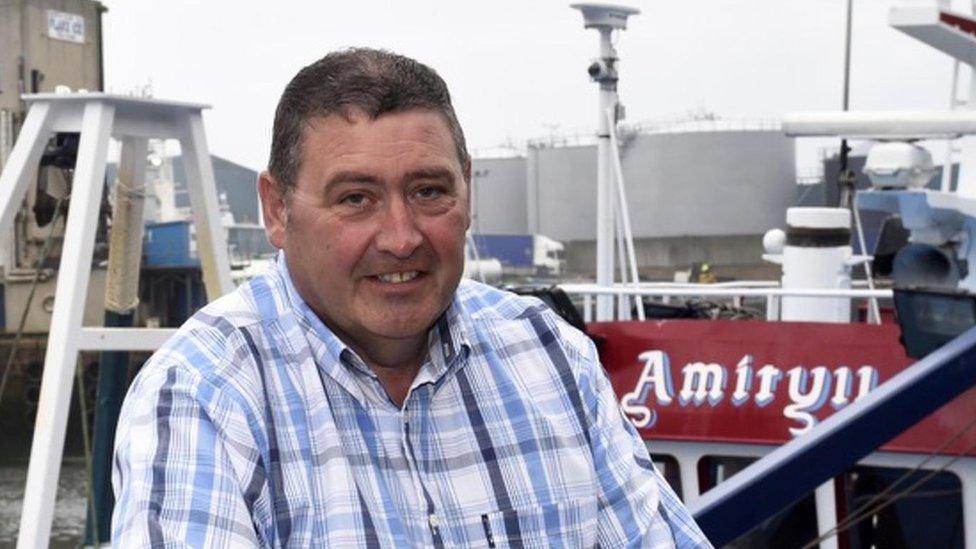PM and Boris clash over EU fishing laws
- Published
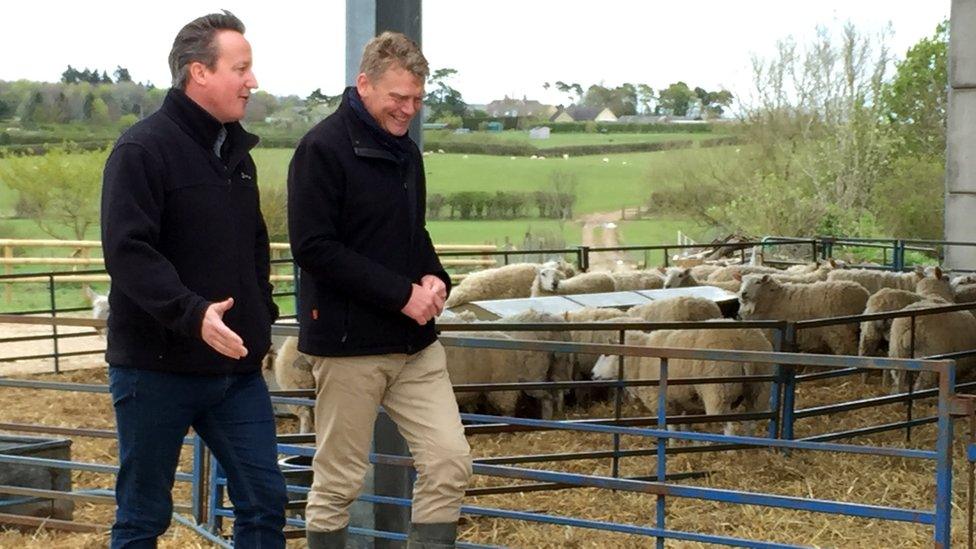
David Cameron made his comments while being interviewed by Countryfile presenter Tom Heap
David Cameron and Boris Johnson have clashed over the impact of the European Union on the UK's fishing industry.
Mr Johnson, from the Leave campaign, told BBC's Countryfile British fishermen needed to be freed from "crazy" EU rules.
But the prime minister said the value of the UK's fishing industry had gone up over the last five years.
The EU's Common Fisheries Policy sets rules for the amount of fish each country's boats can catch.
Mr Cameron and Mr Johnson are leading campaigners on opposing sides of the EU referendum, to be held on 23 June.
How would Brexit affect fishing waters?
Under the EU's Common Fisheries Policy, external (CFP) European fishing fleets are given equal access to EU waters and fishing grounds up to 12 nautical miles from the coasts of EU member states.
The policy also seeks to conserve fish stocks, and EU fishing quotas are imposed.
Leave campaigners say EU rules have devastated British fishing, while Remain supporters say policies were helping fish levels to recover.
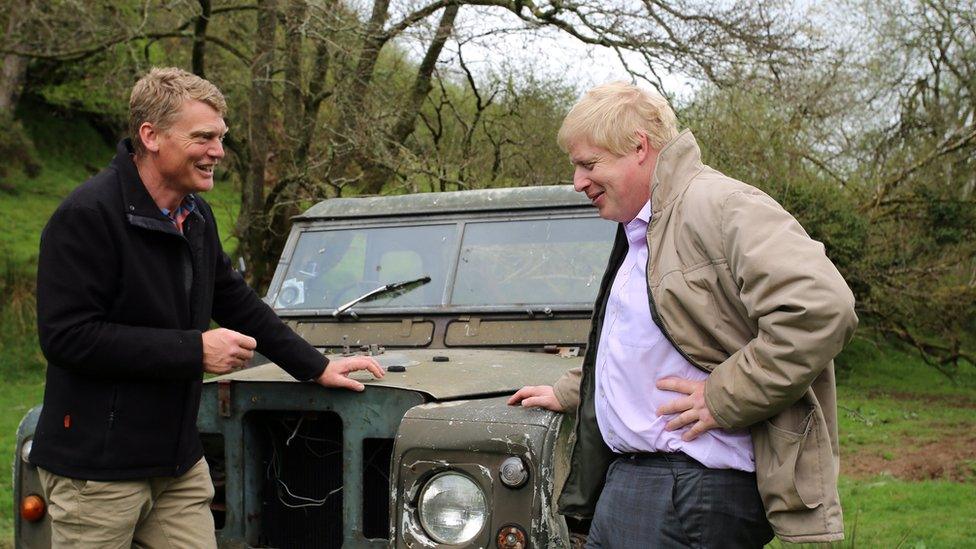
Mr Johnson, the former London mayor, said EU restrictions had inflicted a "tragedy" on the industry and as a result the number of people involved in fishing in the UK had halved.
"Look at what's happened to our coastal towns, they are areas where in many cases you've seen too much poverty. Bringing back the fishing industry in those areas would be fantastic," he said.
"I'm not hostile to our friends and partners in the European Union, I just think we can do it just as well ourselves if we managed our waters.
"Some of the rules, chucking back perfectly good fish to manage the quotas, I mean come on that's got to be crazy, there's got to be a better way of doing it."
But Mr Cameron said the value of the British fishing industry and fish processing industry "has gone up" during his time as prime minister.
He said "big changes" had taken place, bringing in more regional control and removing the "mad discards policy".
"With this greater regional control that we've managed to negotiate you're seeing fish stocks recover.
"Look at the most recent figures: we're actually allowing our fishermen now to land more plaice, more cod. Over the last five years, the UK-landed fish has actually increased by 20%."
He added: "Is it perfect? No. Are we better off fighting from within? Yes. Is this market vital for our farmers and our fishermen? Absolutely, yes."

Fishing quotas
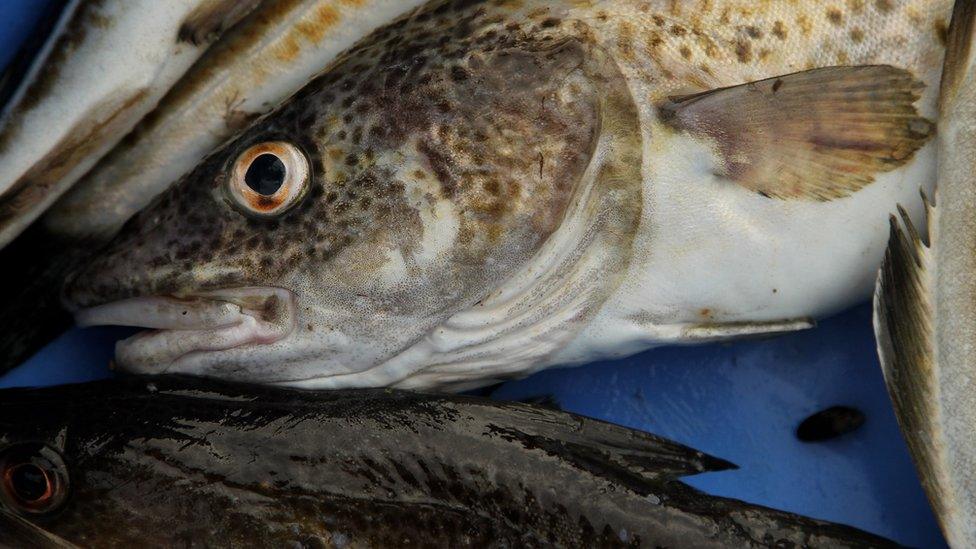
The European Commission sets total allowable catches (TACs) or catch limits (expressed in tonnes or numbers) for most commercial fish stocks
TACs are set annually for most stocks (every two years for deep-sea stocks) by the council of fisheries ministers
TACs are shared between EU countries in the form of national quotas. For each stock, a different allocation percentage per EU country is applied for the sharing-out of the quotas
EU countries can exchange quotas with other EU countries
EU countries have to use transparent and objective criteria when they distribute the national quota among their fishermen
EU countries are responsible for ensuring that their quotas are not overfished. When all the available quota of a species is fished, the EU country has to close the fishery
Source: European Commission, external

In December last year, increases were agreed for the UK fishing industry in quotas for fish including North Sea cod.
The Department for Environment, Food and Rural Affairs (Defra) said at the time the cod quota would rise by 15% and that for English Channel plaice would double.
In the interview with the BBC's Countryfile, Mr Cameron also said the EU had a "mixed score card" on environmental protection - but defended measures such as protection for newts, which has often thwarted house building.
"Sometimes it feels a bit over prescriptive and can be frustrating but generally speaking, actually, we have to have rules on habitat," he said.
"If you look at species and biodiversity, things are getting better."
Mr Johnson said leaving the EU would give the government more freedom to decide over controversial issues, such as GM crops.
Te BBC's Countryfile airs at 19:00 BST on BBC One on Sunday 5 June
- Published31 May 2016

- Published3 June 2016
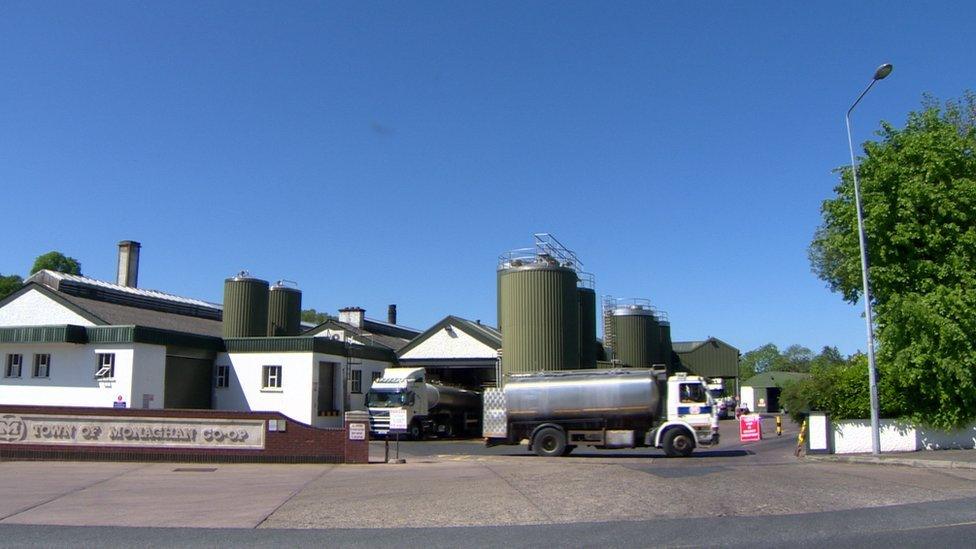
- Published16 December 2015
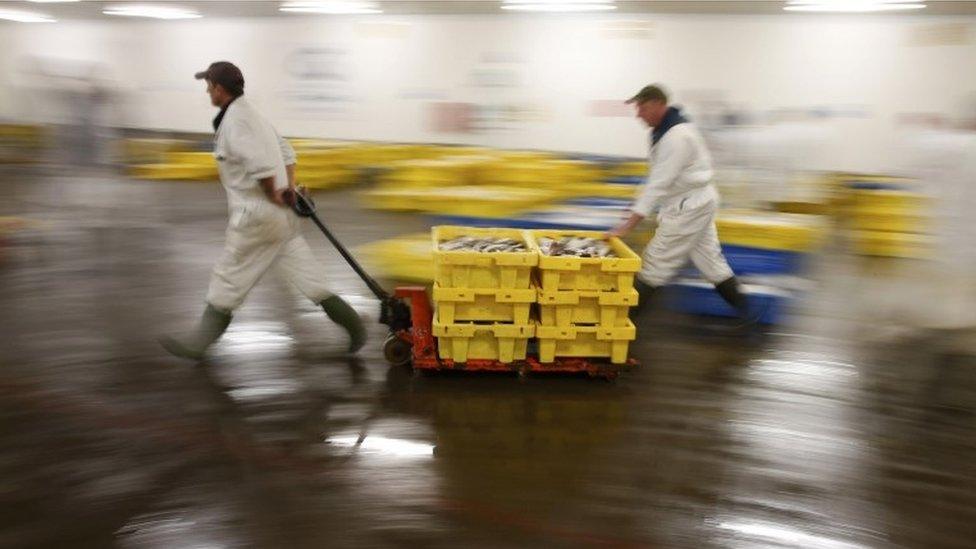
- Published7 March 2016
